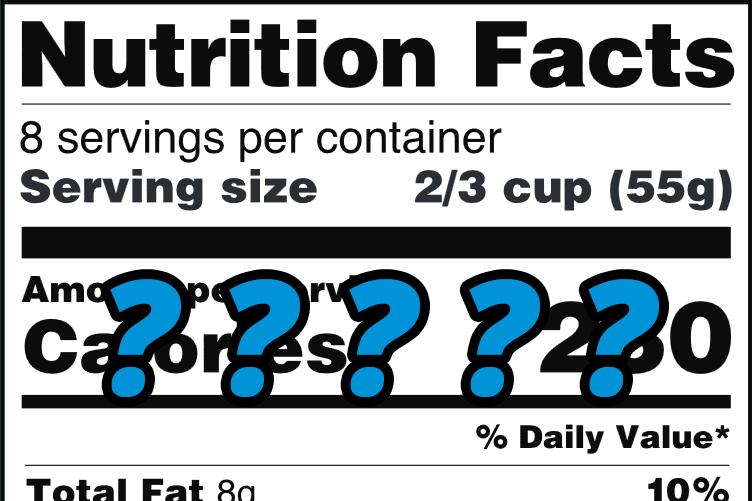Product Not As Described
The fishing industry is being examined for mislabeling and fraud.
April 16, 2018
NYU Dining prides itself on its sushi selection, which used to solely be served at Palladium by LifeWorks but has now expanded to the Market Place at Kimmel. However, NYU students might be shocked to learn that the salmon in Dining Hall sushi is not salmon — it is steelhead. Well it was, until two months ago.
The rainbow trout transitions into a steelhead after transitioning into a saltwater environment after living in freshwater. Migratory behavior like this is very common among trout, salmon and char, which are all members of the Salmonidae or salmon family. So is steelhead trout, in fact, salmon?
Regardless of this ambiguity, according to the Food and Drug Administration’s Regulatory Fish Encyclopedia, steelhead trout is a known cheap substitute for salmon. In the case of steelheads being substituted for salmon, NYU Dining could be committing “Economic Deception or Fraud,” which is “when a less expensive species is substituted for a more expensive-species” according to the FDA.
The finely printed ingredients listed on the sushi package discloses that steelhead is used, so ‘fraud’ is out of the question, but deception seems obvious. This trickery should be put in perspective. Two studies conducted from 2010 to 2012 by the activist organization Oceana discovered that one in five seafood samples, collected from around the world, were mislabeled. In the United States, one in three samples was mislabeled. In New York, 39 percent of seafood was mislabeled, and every sushi venue sampled by Oceana in New York sold mislabeled fish. NYU Dining partook in a global fad, Seafood Mislabeling. Surely, fish mislabeling and fraud’s ubiquity doesn’t mean it’s acceptable, but it should raise the question: is fish fraud and mislabeling OK?
The most obvious objection to fish fraud and mislabeling concerns consumer health. The Seafood List, published by the FDA, explains that misleading or false labeling can prevent people from properly accessing their seafood, which is often associated with safety hazards. Buying a different fish from the one you think you’re buying isn’t only dangerous for consumers with allergies but might also mislead a producer or consumer into storing or cooking the mislabeled fish in a way that may be dangerous for general consumer health.
In some cases, the fish industry’s greed might actually be helping the oceans of the world. In 2016, the Food and Agriculture Organization of the United Nations published a study stating that a third of global fish populations are overfished. Atlantic salmon, the most-commonly sold salmon in the U.S., is so overfished that it has become endangered and thus, illegal to catch commercially. The industry has resorted to aquaculture, or fish farming, to meet continued demand.
Unfortunately, the large majority of Atlantic salmon aquaculture is extremely unsustainable. Farmed salmon harbor a pancreas disease that reduces the fishes’ growth and lifespan. Escaped farmed salmon threaten wild species by competing for resources. Pesticides, antibiotics and excrement pollute ocean water. Not only is the most demanded variety of salmon on the market harmful to the environment, but it is unhealthy. It contains high concentrations of mercury and a toxic chemical, Polychlorinated biphenyl, which ultimately increases consumers’ resistance to antibiotics. Because of these factors, the Environmental Defense Fund has listed conventionally farmed Atlantic salmon as the ‘worst eco-rating.’ The Monterey Bay Aquaria Seafood Watch lists it as a fish to avoid for ecological and consumer harm.
Rated ‘Best Choice’ on both the Environmental Defense Fund and the Monterey Bay Aquarium Seafood Watch: steelhead trout. The majority of steelhead are farmed sustainably, abiding by strict eco-standards, and use freshwater raceways which mimic the river habitat trout normally reside in. Because of these healthy methods of aquaculture, steelhead contains lower amounts of mercury and PCB concentration than farmed Atlantic salmon.
A study published in 2016 by the School of Aquatic and Fishery Sciences at University of Washington concluded that, “on average, DNA-identified species sold were … more sustainable than species listed on their label; thus, mislabeling had a net positive impact on the conservation status of sold species.” According to the results of the study, seafood mislabeling aids the survival of endangered fish species.
After breaking the news to sushi-eaters that their salmon hadn’t ever been salmon, the most common reaction was not of disgust. Most were indifferent, continuing to blithely shovel steelhead-filled sushi rolls into their watering mouths. Is it wrong for NYU Dining to mislabel its steelhead and deceive its customers? Maybe. But if you want safe sushi, maybe it’s for the best that you’re deceived.
In the past two months, NYU Dining has switched from using steelhead in its Salmon-Avocado Roll to Atlantic salmon. It’s unclear whether or not our sushi’s Atlantic salmon strays from the conventional, unsustainable methods of farming Atlantic salmon. Assuming that our salmon follows suit with the others, the fish in our sushi harms our oceans. No longer is NYU sushi misleading but simultaneously, no longer is NYU sushi sustainable.
Popular restaurants, including salad powerhouse, Sweetgreen, advertise and sell steelhead as the sustainable fish it is. By introducing customers to the fish, they are actively changing consumer taste and awareness towards a more sustainable food system. NYU Dining should join them. ‘Steelhead-Avocado’ rolls are the wave. As responsible sushi lovers, we should open our hearts and mouths to them.
Read more from Washington Square News’ “Food Consumes Us.” Email Ben Blaustein at [email protected]
















































































































































Jerry Somers • Apr 16, 2018 at 9:05 pm
Thanks for your enlightening exposure of salmon vs. steelhead and mislabeling. Wonderfully researched and written.
But now I am confused! So is lox or smoked salmon really smoked steelhead trout? Should it be called smoked steelhead trout and bagel- now that’s a mouthful! And what about “Tradition!”?